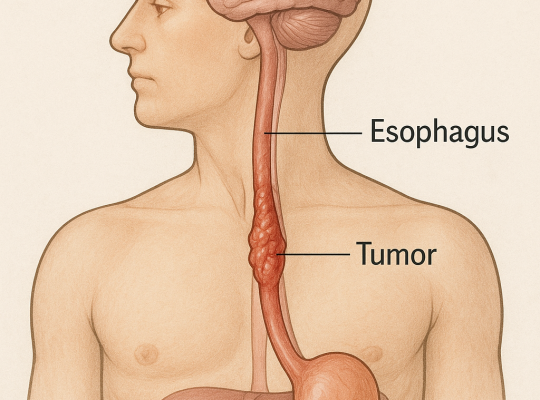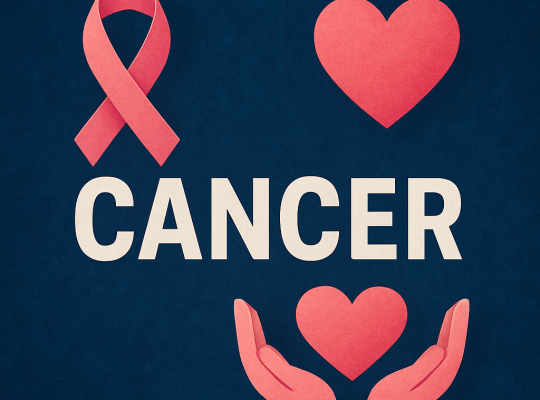Summary: 10 Lifestyle Changes to Lower Cancer Risk
| Lifestyle Habit | How It Helps |
|---|---|
| Eat a plant-based diet | Reduces inflammation, fuels immunity |
| Exercise regularly | Maintains healthy weight, balances hormones |
| Quit smoking | Eliminates exposure to carcinogens |
| Limit alcohol | Reduces risk of multiple cancer types |
| Sleep 7–9 hours/night | Enhances immune and hormone function |
| Practice sun safety | Prevents skin cancer |
| Avoid environmental toxins | Limits exposure to harmful chemicals |
| Know your family history | Enables early screening and prevention |
| Manage stress | Promotes overall well-being |
| Get regular checkups | Catches cancer early, when treatable |
Cancer is one of the leading causes of death globally, affecting millions of people across all ages, races, and backgrounds. While genetics and certain uncontrollable factors play a role in the development of cancer, a growing body of research shows that lifestyle choices can significantly influence your risk.
The good news? Many cancers are preventable. By adopting healthier habits and making conscious lifestyle changes, you can greatly reduce your chances of developing cancer—and improve your overall health in the process.
In this comprehensive guide, we’ll explore how small, consistent changes in your daily habits, diet, environment, and mindset can help lower your cancer risk.
Understanding Cancer: A Quick Overview
Cancer occurs when abnormal cells in the body grow and divide uncontrollably. These cells can form tumors and may spread to other parts of the body. There are more than 100 types of cancer, but they all begin with changes to the DNA in cells.
While some of these changes are inherited, many are triggered by external factors such as:
-
Smoking
-
Unhealthy diet
-
Sedentary lifestyle
-
Exposure to toxins
-
Chronic stress
-
Excessive alcohol use
This means that you have more control over your cancer risk than you might think.
1. Eat a Cancer-Fighting Diet
Your diet plays a major role in shaping your cancer risk. Some foods can increase inflammation and cell damage, while others provide the nutrients your body needs to defend itself.
What to Eat More Of:
-
Fruits and vegetables: Rich in antioxidants, vitamins, and fiber. Aim for a colorful plate—berries, leafy greens, carrots, and cruciferous vegetables like broccoli and cabbage are especially powerful.
-
Whole grains: Brown rice, oats, quinoa, and whole wheat reduce risk for colon and stomach cancers.
-
Healthy fats: Omega-3s in fish (like salmon and sardines), flaxseed, and walnuts help reduce inflammation.
-
Plant-based proteins: Beans, lentils, and tofu offer nutrients without harmful saturated fats.
What to Limit or Avoid:
-
Processed meats: Bacon, sausages, and hot dogs contain nitrates linked to colorectal cancer.
-
Red meats: High consumption is associated with higher risk of colon and pancreatic cancers.
-
Sugary drinks and snacks: Excess sugar can fuel obesity and chronic inflammation.
-
Deep-fried or charred foods: May contain carcinogens like acrylamide or heterocyclic amines.
Pro Tip: Think “farm to plate.” The less processed your food, the better for your body.
2. Get Moving: Physical Activity and Cancer Prevention
Exercise isn’t just good for your heart—it’s a powerful cancer-fighting tool.
How Exercise Helps:
-
Reduces body fat – Obesity is linked to 13+ types of cancer.
-
Regulates hormones – Physical activity helps balance insulin, estrogen, and growth factors.
-
Boosts immunity – A stronger immune system can detect and destroy abnormal cells early.
How Much Is Enough?
-
Aim for at least 150 minutes of moderate exercise (like brisk walking) or 75 minutes of vigorous activity (like running) per week.
-
Include muscle-strengthening activities twice a week.
-
Even light daily movement—taking stairs, gardening, stretching—adds up.
Tip: Make it fun! Dancing, biking, swimming, or group workouts keep you motivated.
3. Quit Smoking and Avoid Tobacco in All Forms
Smoking is the single biggest preventable cause of cancer worldwide. It doesn’t just cause lung cancer—it’s linked to cancers of the mouth, throat, bladder, pancreas, kidney, cervix, and more.
Even secondhand smoke poses a risk to non-smokers, especially children.
What Happens When You Quit:
-
20 minutes later: Heart rate and blood pressure drop.
-
12 hours: Carbon monoxide levels normalize.
-
A few months: Lung function improves, coughing decreases.
-
1–10 years: Your cancer risk drops dramatically.
If you smoke or use tobacco, it’s never too late to quit. Talk to a doctor or join a support group—help is available.
4. Limit Alcohol Consumption
Alcohol increases your risk of cancers of the:
-
Mouth
-
Throat
-
Esophagus
-
Liver
-
Breast
-
Colon
The risk grows with the amount you consume and how often.
Guidelines:
-
Women: No more than 1 drink per day
-
Men: No more than 2 drinks per day
If you can avoid alcohol entirely, that’s ideal. But even reducing intake has a measurable benefit.
5. Get Quality Sleep
Sleep may seem unrelated to cancer, but chronic sleep deprivation disrupts the immune system and increases inflammation—both of which can increase cancer risk.
Tips for Better Sleep:
-
Maintain a consistent sleep schedule—even on weekends.
-
Limit screen time before bed.
-
Create a relaxing bedtime routine.
-
Avoid heavy meals and caffeine in the evening.
-
Keep your room cool, dark, and quiet.
Aim for 7–9 hours of sleep per night for optimal body repair and hormone balance.
6. Protect Yourself from Harmful UV Exposure
Skin cancer is one of the most preventable types of cancer, and excessive sun exposure is a major cause.
Sun Safety Tips:
-
Use broad-spectrum SPF 30+ sunscreen daily—even on cloudy days.
-
Wear protective clothing, sunglasses, and a wide-brimmed hat.
-
Avoid tanning beds.
-
Stay in the shade during peak sunlight hours (10 am – 4 pm).
Also, check your skin regularly for new or changing moles and spots. Early detection saves lives.
7. Be Aware of Environmental Toxins
We’re constantly exposed to chemicals in our air, food, water, and household products. While not all chemicals are harmful, some may act as carcinogens (cancer-causing agents).
How to Minimize Risk:
-
Choose natural or organic cleaning and personal care products.
-
Use glass or stainless-steel containers instead of plastics, especially when heating food.
-
Ventilate your home to reduce indoor air pollution.
-
Check your water quality and consider using a filter.
-
Be cautious with pesticides and herbicides—follow safety instructions strictly.
8. Know Your Family History and Get Screened
Some cancers have a genetic component, meaning they can be inherited. Knowing your family medical history helps you and your doctor make informed decisions about screenings and prevention.
If cancer runs in your family:
-
Get genetic counseling if needed.
-
Follow a tailored screening schedule (e.g. earlier mammograms, colonoscopies).
-
Talk to your doctor about additional prevention strategies.
Early detection saves lives. Don’t skip recommended screenings even if you feel fine.
9. Manage Stress and Mental Health
Chronic stress affects your immune function and overall health. While stress doesn’t cause cancer directly, it can lead to unhealthy coping habits (like smoking, drinking, or overeating) that increase cancer risk.
Ways to Cope Healthily:
-
Practice mindfulness or meditation.
-
Exercise regularly.
-
Get support from loved ones or professionals.
-
Set boundaries and say “no” when needed.
-
Make time for hobbies and laughter.
Your mental health is just as important as your physical health.
10. Stay Proactive with Regular Checkups
Many cancers are highly treatable when detected early. Regular checkups and screenings help you stay on top of your health.
Examples of Important Screenings:
-
Pap smears and HPV tests (for cervical cancer)
-
Mammograms (for breast cancer)
-
Colonoscopy (for colon cancer)
-
Prostate exam (for prostate cancer)
-
Skin checks (for melanoma)
-
Blood tests (for liver or blood cancers)
Talk to your doctor about what’s appropriate for your age, gender, and risk profile.
Final Thoughts: Small Steps, Big Impact
Preventing cancer doesn’t require a perfect lifestyle. It requires consistent, intentional choices made over time.
By eating clean, staying active, limiting harmful substances, and prioritizing mental health, you can dramatically lower your risk—not just of cancer, but of heart disease, diabetes, and other chronic conditions.
Remember:
“An ounce of prevention is worth a pound of cure.”
You have more power over your health than you realize. Start today—your future self will thank you.



